|
Getting your Trinity Audio player ready...
|
Whether melted in a quesadilla or a grilled cheese sandwich, or sliced on a charcuterie board next to one of its stinkier cousins, Monterey Jack is a staple cheese. Its flavor is similar to cheddar, but it contains a bit more moisture. Despite its popularity, there remains some mystery around Monterey Jack’s true origins. Though it may have the name “Monterey,” the town of Pacifica lays claim to the iconic cheese.
The recipe for what we now call Monterey Jack is believed — by some — to have originated in California’s missions in the 1700s. But the soft, mild cheese got its name — at least the “Jack” part — much later from a wealthy Monterey landowner named David Jack. Jack popularized and marketed the cheese. But how he got his hands on the recipe is wrapped up in local pride — and lore.
David Jack and Monterey
David Jack was born in Scotland in 1822 and had emigrated to America by the time he reached adulthood. After a stop on the East Coast, where he acquired a shipment of guns, Jack arrived in California in 1849 in the midst of the Gold Rush. Firearms were a hot commodity in those days, and Jack sold the guns for a huge profit. He took that money and went prospecting, but never found gold.
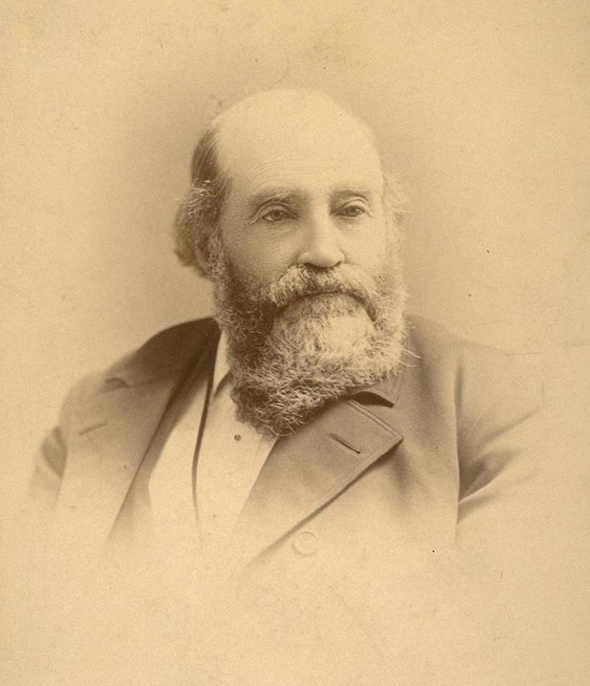
In 1851, at the end of the Mexican-American war, as part of the Treaty of Guadalupe Hidalgo, the land around California was divided up and sold. The pueblo of Monterey, as it was then known, hired an attorney named Dalos Rodeyn to handle some land deals.
But the town had no money to pay him and had to sell land to pay that debt. That attorney teamed up with Jacks to buy the entire town of Monterey and much of the adjacent land at a very low rate. Jacks became the de facto landlord of the region, and began lending money against people’s land, and then foreclosing and taking ownership of even more land in the region.
“He was able to take advantage of a lot of people. He has a very bad reputation,” said Manning.
The town of Monterey tried a few times to buy itself back from Jacks, even sending a case to the U.S. Supreme Court in 1906, but Jacks won.
There were hundreds of dairies making milk and various types of cheese around Monterey at the time, and several were on Jacks’ land. One of those dairies was making a mild, soft, white cheese — sound familiar? Jacks would market and sell that cheese with his name on it, and the official Jack cheese was born.
The original recipe for the cheese Jacks would sell as his own could have come from any number of places — but where?
The Pacifica connection
According to a 1938 cookbook, “Eating Around San Francisco,” the recipe for what we now know as Jack cheese originated on Mori Point in Pacifica. The author visited Mori Point and wrote:
“I was interested to discover that it was Stephano Mori, who first made what we today call Monterey cheese. Having been born and brought up in Italy, Stephano and his wife learned there how to make cheese. They made it on their Mori Point property. The cheese was very good.
“An Italian named Baldocchi was a friend of the family. He learned how to make the cheese and went to Monterey and manufactured it on a commercial scale. As he was on the Jack ranch. The cheese is now known as Jack or Monterey cheese.”
If this book is to be believed, Baldocchi took the recipe from the Moris, moved to Monterey and mass-produced it with David Jacks.
Other theories
Not everyone is sold on Jack cheese being from Pacifica. In fact, there are a number of claims to the lineage of Monterey Jack. Some point to Domingo Pedrazzi of Carmel Valley, who made a cheese called “jack cheese.” It required pressure to remove moisture, which he accomplished with a “jack press.”
It’s also been argued that a local woman who sold homemade queso del país — like the cheese made at California’s historic missions — could be the person Jacks took the recipe from. What we do know for sure is Jacks didn’t invent the recipe – but he did go on to make that cheese, and himself, very famous.
Pacifica Jack cheese
In Pacifica, the historical society is making the most of their lesser-known connection to this California cheese by producing their own variety. Pacifica Jack Cheese is sold exclusively at the Pacifica Coastside Museum in Pacifica, and Manning says they’ve sold nearly 3 tons so far.
If you begin to ask where Monterey Jack cheese originated, you’ll get a different answer depending on whom you ask. But Kathleen Manning says, “If you don’t know Pacifica, you don’t know Jack.”
PACIFICA JACK CHEESE DURING THE PANDEMIC
Buy Some!
Although we don’t claim our cheese has preventative powers, we do claim it will brighten your meals to add a little cheese! It can be ordered by calling Kathleen @ 415 509 6685 or emailing: manningsbk@aol.com. It is still only $8 a pound and will help support our Museum during these trying times. We have sold 4 tons so far!
About Our Pacifica Jack Cheese
BY VANITHA SANKARAN
Photos by Jamie Soja, Pacifica Magazine
Any cheese lover — especially one who enjoys a great grilled cheese sandwich and tomato soup — is surely familiar with the creamy cheese known as Monterey Jack. But did you know how Pacifica fits into the story of this beloved staple?
Folklore tells us that Jack cheese descends from a semi-soft style of Italian farmers’ cheese that was once a staple of Caesar’s vast armies. Reportedly, a version of this cheese made its way from Rome to Mallorca, Spain, and then on to Mexico via 18th century Franciscan monks. From here, however, the story gets a little muddy.
One version tells of a Spanish woman named Dona Joana Cota de Boronda who made bricks of cheese that she sold door to door in Monterey. According to the tale, her property fell into the hands of notorious Scot David Jacks, who made his fortune as a usurer. Another version speaks of Jacks paying overdue taxes on a dairy farm, confiscating it and then selling the cheese as way to use up the farm’s milk surpluses. However, Jacks came by his cheese, his contribution in making Monterey Jack a well-known American cheese is undisputed.
More recently, however, Pacifican Kathleen Manning discovered a new twist to the mystery: it turns out that the recipe for Jack cheese actually might not have passed through Mexico at all, but came from Italy straight to Pacifica, and through a family known well to locals.
Manning is an antiquarian who sells antique books and prints and is the president emerita of the Pacifica Historical Society. A collector of vintage cookbooks, Manning delights in reading about social history through food and recipes. She recalls coming across a 1938 edition of the book “Eating Around San Francisco,” by Ruth Thompson and Chef Louis Hanges, and thinking, “I wonder if there’s anything there on Pacifica? And there was, on Mori, and Mori’s Inn at the Point, which burned down in the ’60s.”
The passage she refers to is a description of Ray and Marie Mori’s farmhouse near Rockaway Beach, originally purchased by Stefano Mori in 1888 when he arrived from Italy. Marie took the authors of the book on a tour of their restored home and hotel accommodations. As they describe it, the kitchen carried “the odors of cooking sauces, soups, and meats,” while the storeroom seemed “a veritable Italian grocery store, with cheeses, salami hung from the ceiling, shelves of necessary sauces and foods that go into the making of Mori meals.”
It turns out that Stefano Mori made the Italian farmers cheese on the property himself. Says Manning, “Their cheese recipe was stolen by an employee,” apparently by a family friend named Baldacchi. “They had a falling out, and he went down to Monterey, to the Jacks Ranch. He had the recipe and they started producing the cheese commercially and it’s called Monterey Jack.” In effect, Manning says, “they’ve stolen our recipe, right from Pacifica.” She found corroborating evidence of Jacks’ theft in the book “Roadside History of California” by Ruth Pittman.
Manning decided to take the recipe back to its local origins. Using her vast skills and resources in finding rare books, Manning was able to track down the recipe Stefano Mori used to make his cheese, which the Pacifica Historical Society resurrected under the name Pacifica Jack Cheese.“It’s not a complicated recipe,” she says, and explains how they found a cheesemaker to produce the organic cheese as a novelty. “But it took off like crazy.”
In fact, during the tours of Sam’s Castle, also put on by PHS, an actress comes out in the ghostly guise of Mrs. Mori to explain the history of the cheese. “It really is very tasty,” Manning says, estimating they’ve sold roughly a ton of Pacifica Jack now, with all proceeds going to PHS for their restoration projects.
Earlier this year, the PHS held its second annual cheese contest, netting 22 contestants, both local and from the greater Bay area. They all entered Pacifica Jack-based foods in four categories: hors d’oeuvres, desserts, cheese trays and creative use. The submissions were stunning displays of edible art with names such as “Mega Jack,” “Spicy Jack,” “Jack Crack” and “Bringing Sexy Jack.” The style goes along well with the cheese memorabilia PHS sells with sly slogans such as “If You Don’t Know Pacifica, You Don’t Know Jack!” and “Make Pacifica Great Again. Buy Pacifica Jack Cheese.”
Prizes included tickets to the ragtime musician Bob Milne concert, a gift certificate to the PHS store, and a local cookbook. The Spindrift Players entertained with songs from their upcoming production of “Cabaret,” and participants got the chance to take pictures with PHS’ cardboard cow.
The society is hoping to hold a grilled cheese contest later this year and eventually also plans to publish a cookbook with Pacifica Jack cheese recipes.
The cheese is sold both at the PHS-run Pacifica Coastside Museum and at Manning’s Books and Prints Old and Rare at the Crespi Center, as well as at Fog Fest and during the castle tours. Although it’s hard for PHS to keep the cheese in stock due to its popularity, the PHS has no plans to sell the cheese elsewhere.
But as Manning puts it, “You never know what the future holds.” Given how popular the cheese is, the future for this historical cheese seems bright.
Pacifica Jack Cheese can be tasted at Pacifica Coastside Museum. For more information, please visit http://pacificahistory.org.
For more about Pacifica Jack Cheese, check out these articles:
Visit Pacifica: Keep Pacifica Grate – Visit Pacifica
It’s Pacifica Jack Cheese, any way you slice it
The Pacifica Historical Society
The Society preserves, enjoys and educates about Pacifica’s past. In addition to historical research, we host regular events about local history, and run the Pacifica Coastside Museum. We hope you will visit us!
Pacifica has a fascinating history. It was the site of an Ohlone village over a thousand years ago. It was the site where Europeans first saw the San Francisco Bay. It has been part of Spain, Mexico and the United States. During Prohibition, Pacifica was the home of rolicking speakeasies. Pacifica’s incredible view of the Pacific Ocean brought military lookouts missle silos during the Cold War. Today Pacifica attracts visitors from around the world, drawn to our natural beauty, amazing hiking trails, legendary surfing, a castle, and the world’s most beautiful Taco Bell (seriously!).
Current exhibits include a working model of the Ocean Shore Railroad, the Portola Expedition, Pacifica in WWII, the Ohlone People, and more!
MUSEUM OPEN TO VISITORS DURING THE WEEK
Please note that beginning in July, the Coastside Museum will only be open on Thursdays and Saturdays, from 1 pm to 4 pm. Docents will be on hand to answer questions and to interpret the exhibits.


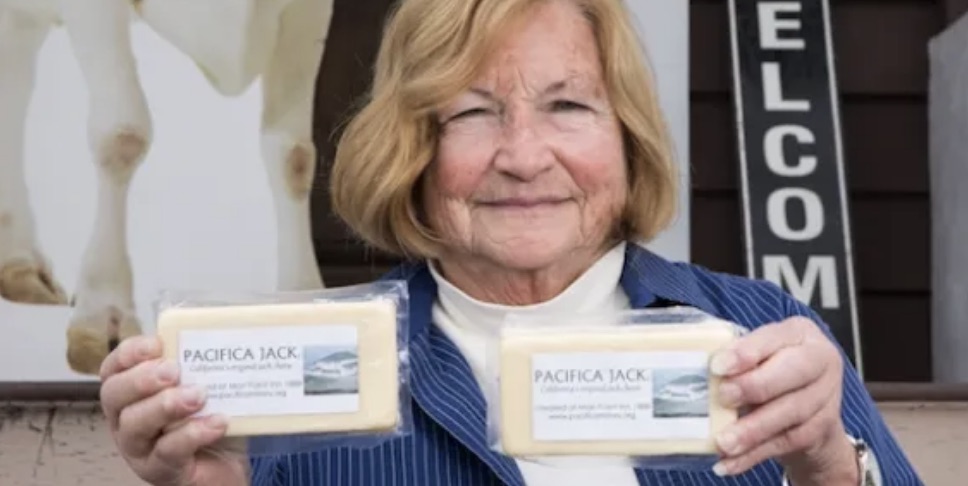
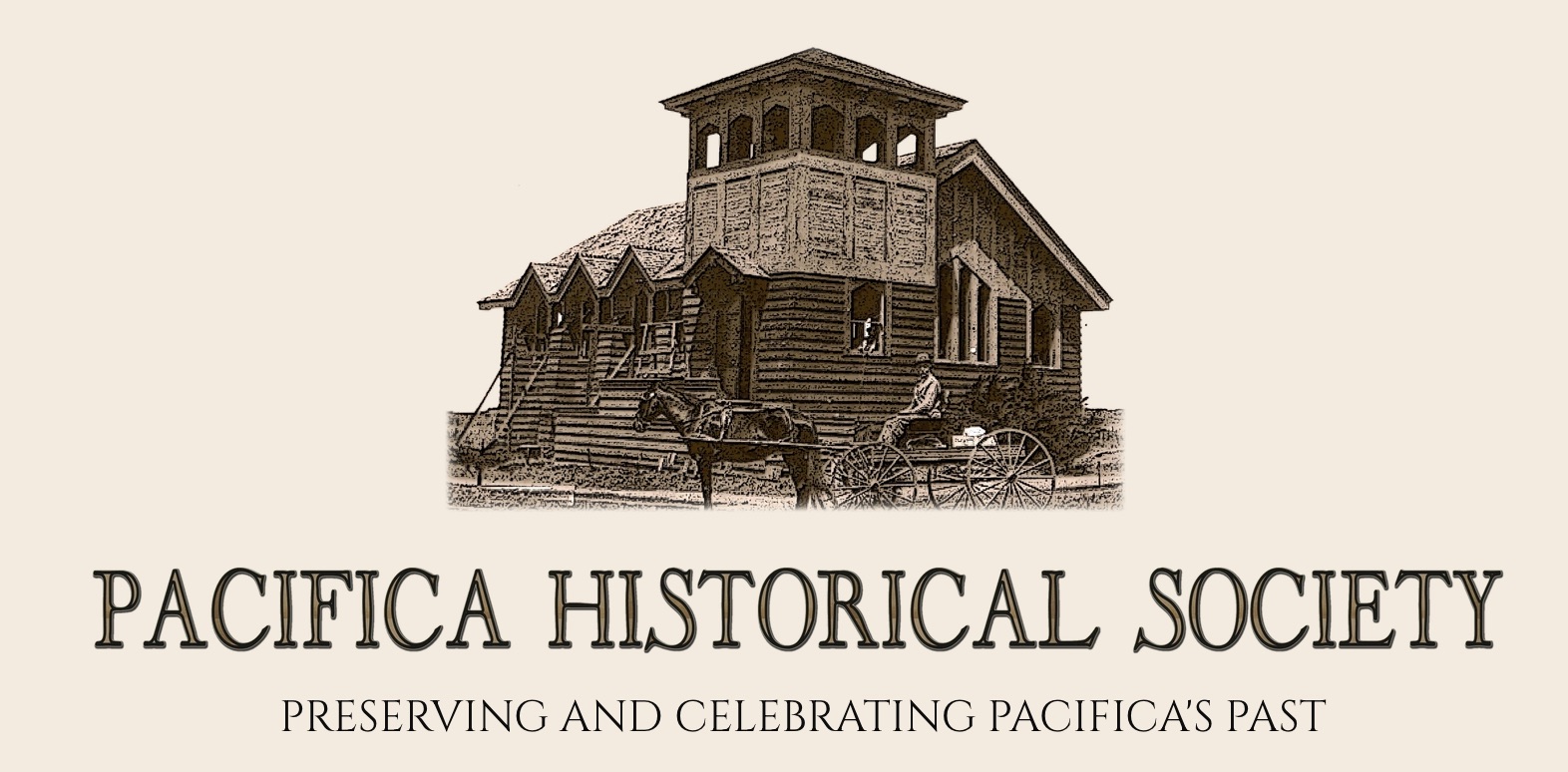
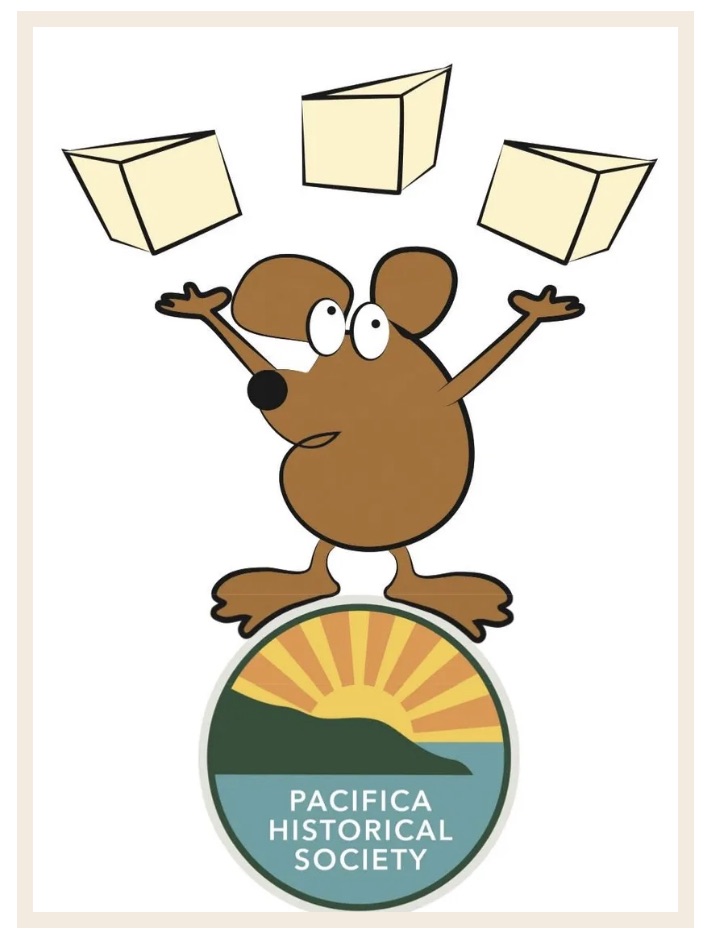

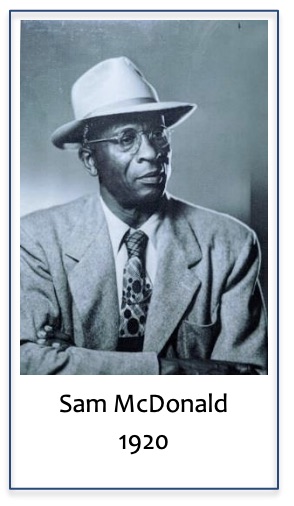
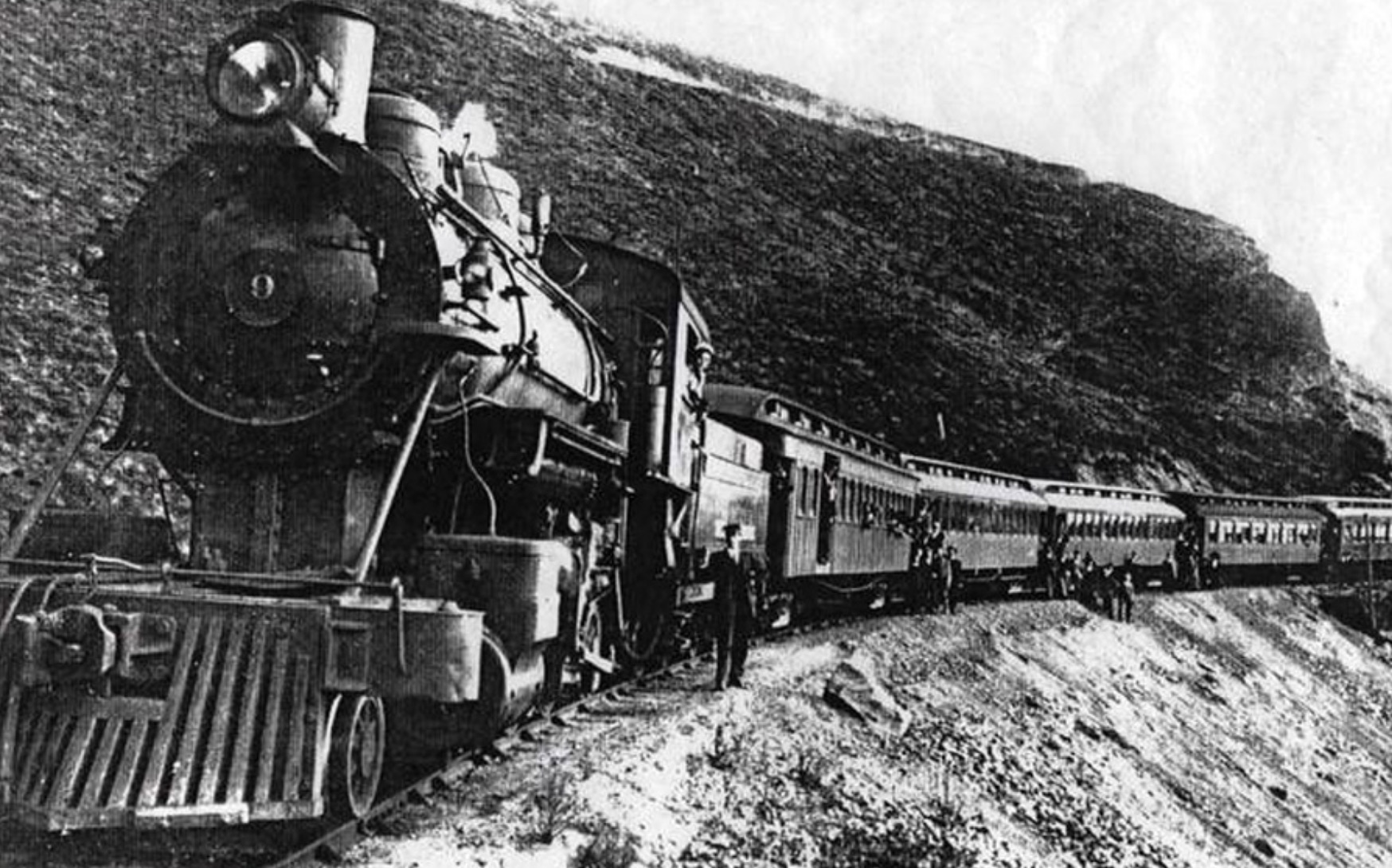
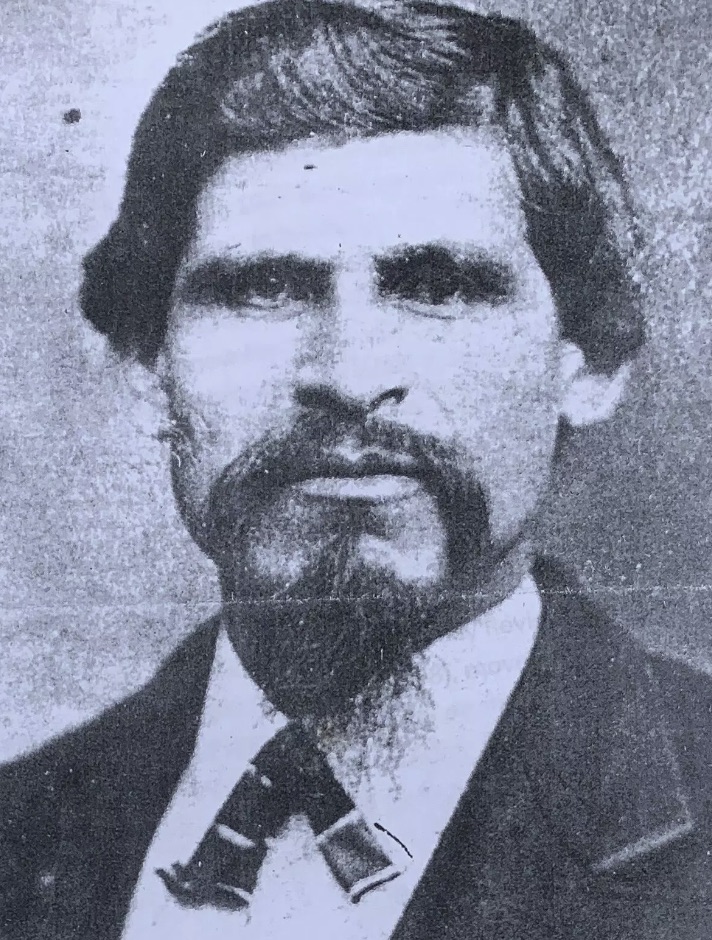
Whatever way you slice it, it is rather unfair, and somewhat of a stretch, to accuse Jack of theft, when no one can pin original ownership down to anyone in particular, and there exists so much confusion over the issue. Talk about giving a dog a bad name!